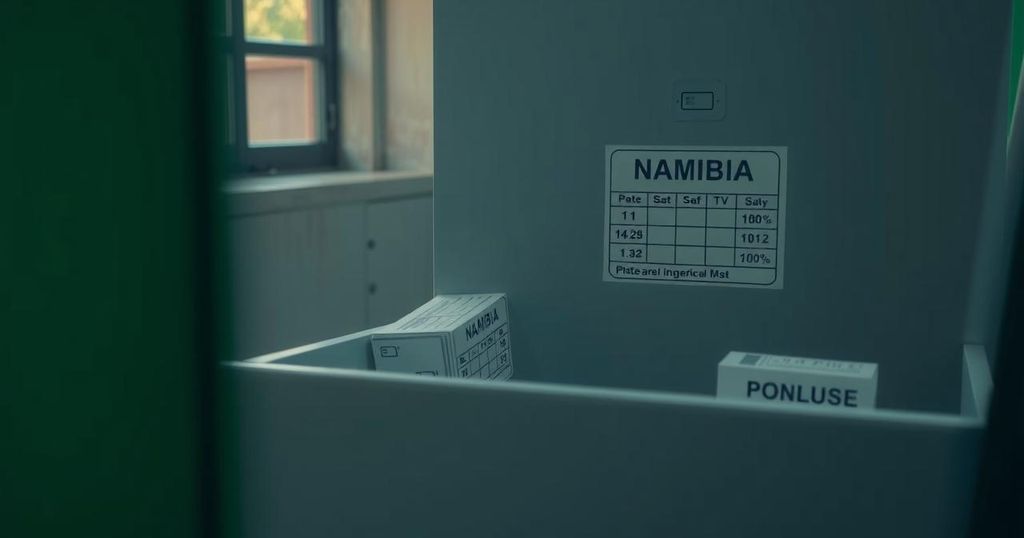Namibia Extends Election Voting Amid Technical Issues, Spark Opposition Upheaval

Namibia has extended its election voting period due to ballot shortages and technical problems, prompting opposition complaints of potential fraud. The move has drawn criticism from the Independent Patriots for Change party, as many voters face logistical challenges in casting ballots. This situation arises alongside regional unrest in Mozambique, adding to the complexity of electoral processes in Southern Africa.
Namibia’s electoral agency has officially extended the deadline for voting in the ongoing presidential and parliamentary elections due to significant shortages of ballot papers and technical difficulties. Originally set to conclude on Wednesday, polling stations will now remain open until Saturday evening. The opposition Independent Patriots for Change party has challenged this extension, asserting that it is unconstitutional and indicative of potential electoral fraud.
The situation unfolds amidst a broader regional context where Mozambique is experiencing unrest following the recent controversial elections that led to protests against the ruling Frelimo party. In Namibia, Netumbo Nandi-Ndaitwah, the vice president and presidential candidate for the ruling SWAPO party, aims to become the first female leader of the nation if elected. However, she encounters formidable resistance from a youth demographic increasingly disillusioned by persistent economic disparities within a nation rich in mineral resources.
Elsie Nghikembua, the chairperson of the Electoral Commission of Namibia, indicated that logistical challenges had severely impacted many voters, leaving some polling stations unable to meet demand. Reports from various regions reflect long lines at polling centers, and many rural locations have yet to receive ballot papers. Voter confidence is shaken as delays continue; registered voter Nangombe Shitaleni expressed his frustration at the lack of assistance, saying, “It’s like you are a mad person.”
Approximately 1.4 million individuals are registered to participate in these elections, intended to shape the country’s leadership for the next five years. Since gaining independence in 1990, SWAPO has maintained a firm grip on the political landscape, yet the current discontent surrounding high unemployment and economic challenges could signal a changing tide, similar to shifts seen in other Southern African nations this year.
Namibia’s decision to extend voting due to ballot shortages highlights critical issues within its electoral process. Historically recognized for relatively credible elections, the country faces scrutiny as it navigates logistical disruptions and opposition claims of impropriety. The 2023 elections are particularly significant, drawing parallels to regional unrest in Mozambique, and they occur against the backdrop of social and economic frustrations among the youth and other demographics in Namibia, a nation with a complex colonial history and current governance under SWAPO.
The decision by Namibia’s elections authority to extend the voting period in light of ballot shortages has sparked controversy, particularly from opposition parties alleging fraud. As the country strives to address logistical challenges and maintain electoral integrity, voter frustration is palpable, particularly among a youthful electorate grappling with economic difficulties. The unfolding situation not only highlights the inherent challenges of administering elections amidst technical issues but also may signal a broader shift in public sentiment towards the ruling party amid rising dissatisfaction with current socio-economic conditions.
Original Source: abcnews.go.com








